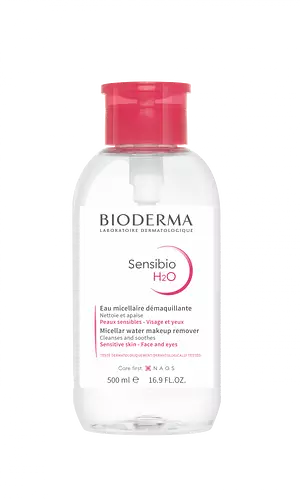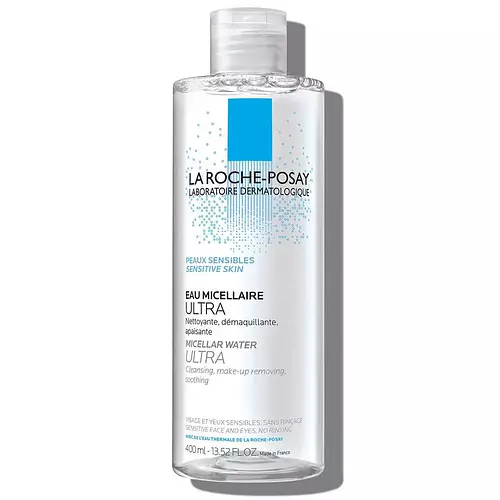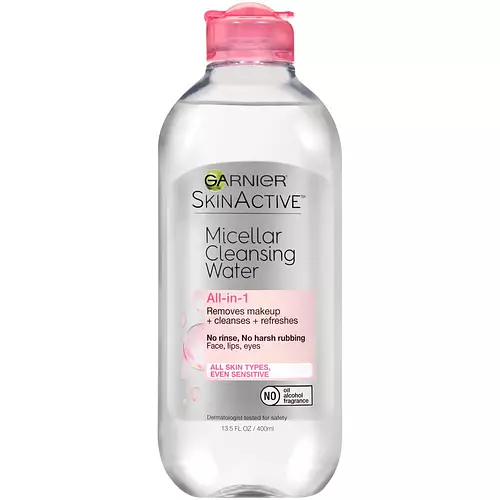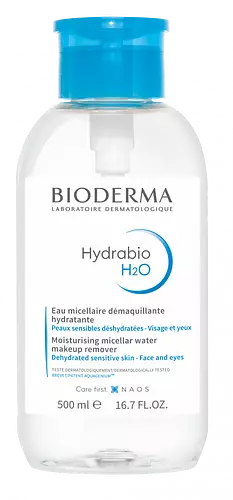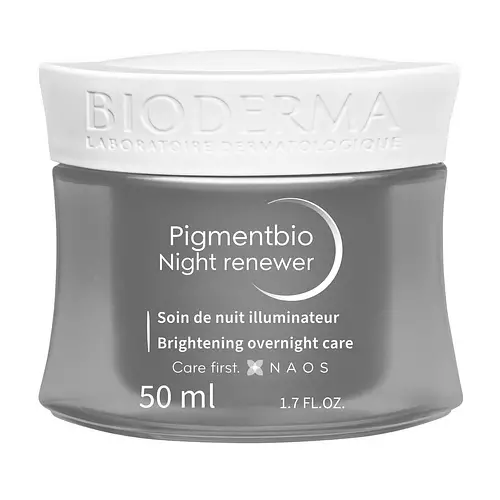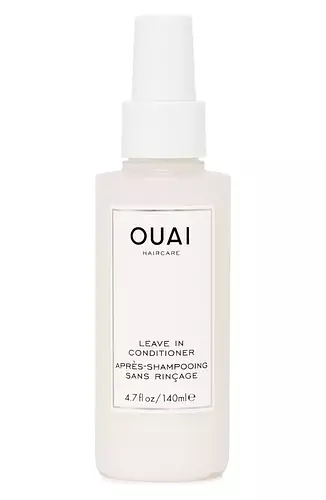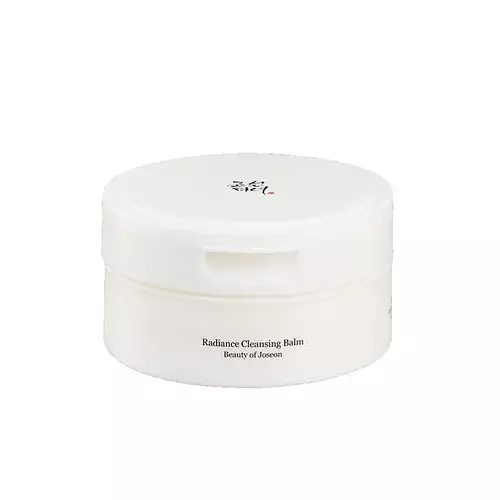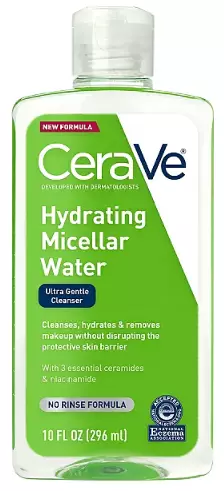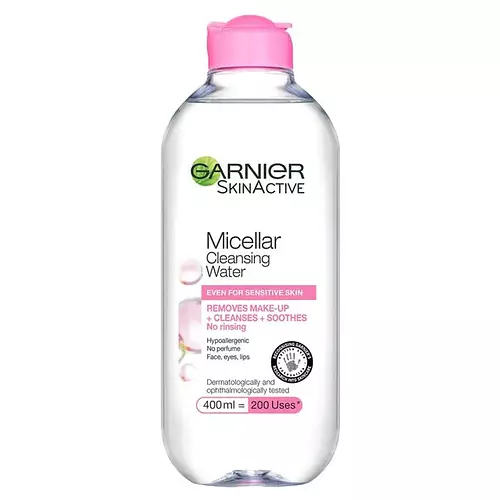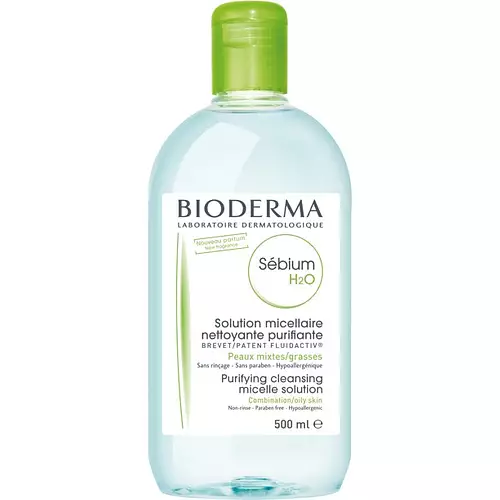
Bioderma Sébium H2O Purifying Micellar Cleansing Water and Makeup Removing Solution Ingredients Explained
Overview
What it is
Makeup remover with 15 ingredients
Cool Features
It is fungal acne (malassezia) safe and reef safe
Free From
It doesn't contain any harsh alcohols, common allergens, oils, parabens or silicones
Fun facts
Bioderma is from France. This product is used in 65 routines created by our community.
We independently verify ingredients and our claims are backed by peer-reviewed research. Does this product need an update? Let us know.
Makeup remover with 15 ingredients
Quick info
You should know
Concerns
This product contains 1 ingredient that may have this attribute:
This product contains 2 ingredients that may have this attribute:
Ingredients 15
Water. It's the most common cosmetic ingredient of all. You'll usually see it at the top of ingredient lists, meaning that it makes up the largest part of the product.
This ingredient is derived from caprylic and capric acids. It is an emulsifier with emollient properties.
Sodium Citrate is the sodium salts of citric acid. In skincare, it is used to alter pH levels and acts as a preservative.
Ginkgo Biloba Leaf Extract comes from the leaves of the Ginkgo tree. This tree is native to China and has been used in traditional Chinese medicine for thousands of years.
Mannitol is a sugar alcohol. It is a humectant and moisturizes the skin. In vitro (not tested on a living organism), mannitol displays antioxidant properties.
Fructooligosaccharides is an alternative sweetener. It is often derived from the blue agave plant.
Propylene Glycol is an odorless, colorless liquid. As a humectant, it helps skin retain moisture. It also aids in delivering active ingredients.
Citric Acid is an AHA derived from citrus fruits (think oranges, lemons, and limes!).
Disodium EDTA plays a role in making products more stable by aiding other preservatives.
Parfum is a catch-all term for an ingredient or more that is used to give aroma to products. Parfum, or fragrance, can be a blend of hundreds of chemicals or plant oils. This means every product with "fragrance" or "Parfum" in the ingredients list is a different mixture.
Ingredient Ratings
Based on the number of likes and dislikes each ingredient has received.
Ingredients Explained
Water. It's the most common cosmetic ingredient of all. You'll usually see it at the top of ingredient lists, meaning that it makes up the largest part of the product.
So why is it so popular? Water most often acts as a solvent - this means that it helps dissolve other ingredients into the formulation.
You'll also recognize water as that liquid we all need to stay alive. Talk about multi-purpose! If you see this, drink a glass of water. Stay hydrated!
Learn more about WaterThis ingredient is derived from caprylic and capric acids. It is an emulsifier with emollient properties.
According to the manufacturer, it is hydrophilic and soluble in aqueous solutions (water). They also state this ingredient is stable in a medium pH range (~5 - 8).
As an emulsifier, it helps make oils and oil-soluble ingredients more soluble in water.
Learn more about Peg-6 Caprylic/Capric GlyceridesSodium Citrate is the sodium salts of citric acid. In skincare, it is used to alter pH levels and acts as a preservative.
Sodium Citrate helps maintain the pH of a product. Normal pH level of skin is slightly acidic (~4.75-5.5). The acidity of our skin is maintained by our glands and skin biome. Being slightly acidic allows our skin to create an "acid mantle". This acid mantle is a thin barrier that protects our skin from bacteria and contaminants.
Sodium Citrate is a chelating agent. It neutralizes metal ions from water and prevents them from binding to other ingredients. This ensures the other ingredients will not be altered.
Learn more about Sodium CitrateWe don't have a description for Zinc Gluconate.
Copper Sulfate is a type of sulfate.
Ginkgo Biloba Leaf Extract comes from the leaves of the Ginkgo tree. This tree is native to China and has been used in traditional Chinese medicine for thousands of years.
Ginkgo Biloba has soothing and antioxidant properties. It contains flavonoids and terpenoids, potent antioxidants. Antioxidants may protect your skin from damage caused by external sources such as pollution.
Its soothing ability comes from a variety of compounds including biflavones, a type of flavonoid. Studies show gingko biloba has strong anti-inflammatory properties.
Learn more about Ginkgo Biloba Leaf ExtractMannitol is a sugar alcohol. It is a humectant and moisturizes the skin. In vitro (not tested on a living organism), mannitol displays antioxidant properties.
When found in aqueous solutions, mannitol tends to become acidic. This is because it loses a hydrogen ion. This is why mannitol can often be found with pH adjusting ingredients, such as sodium bicarbonate.
Fun fact: Mannitol can be found in foods as a sweetener. It can be naturally found in mushrooms, algae, fruits, and veggies.
Learn more about MannitolXylitol is a humectant and prebiotic. It can help with dry skin.
In studies, xylitol has been shown to improve dry skin. It decreased transepidermal water loss, or when water passes through the skin and evaporates. Xylitol also showed to help improve the biomechanical properties of the skin barrier.
The prebiotic property of xylitol may also help reinforce our skin's natural microbiome. Having a healthy microbiome prevents infection by bad bacteria and helps with hydration.
As a humectant, Xylitol helps draw moisture from both the air and from deeper skin layers. This helps keep skin hydrated.
Xylitol is a sugar alcohol and commonly used as a sugar substitute. It is naturally occurring in plants such as strawberries and pumpkin.
Learn more about XylitolWe don't have a description for Rhamnose.
Fructooligosaccharides is an alternative sweetener. It is often derived from the blue agave plant.
Fructooligosaccharides is a prebiotic and helps to hydrate the skin. Emerging studies are also showing fructooligosaccharides to have antioxidant properties.
As a humectant, Fructooligosaccharides helps draw moisture to the skin, helping to hydrate the skin.
Bananas, onions, garlic, asparagus, jícama, and leeks also contain fructooligosaccharides.
Learn more about FructooligosaccharidesPropylene Glycol is an odorless, colorless liquid. As a humectant, it helps skin retain moisture. It also aids in delivering active ingredients.
Another role of this ingredient is preventing a product from melting or freezing. Propylene glycol also adds antimicrobrial properties to a product, elongating product lifespan.
This ingredient is considered an organic alcohol and commonly added into both cosmetics and foods.
Those with sensitive skin or conditions may deliver a rash when using this ingredient.
Learn more about Propylene GlycolCitric Acid is an AHA derived from citrus fruits (think oranges, lemons, and limes!).
If you spot Citric Acid near the end of an ingredient list, it's likely there as a pH adjuster rather than an active ingredient.
As an AHA, Citric Acid removes the top layer of skin cells from the newer layer of skin underneath. This helps skin to remove dark spots and look more even.
Read more about some other popular AHA's here:
Learn more about Citric AcidDisodium EDTA plays a role in making products more stable by aiding other preservatives.
It is a chelating agent, meaning it neutralizes metal ions that may be found in a product.
Disodium EDTA is a salt of edetic acid and is found to be safe in cosmetic ingredients.
Learn more about Disodium EDTACetrimonium Bromide is a preservative.
Parfum is a catch-all term for an ingredient or more that is used to give aroma to products. Parfum, or fragrance, can be a blend of hundreds of chemicals or plant oils. This means every product with "fragrance" or "Parfum" in the ingredients list is a different mixture.
In the US, the alternative name for parfum is 'fragrance'. The term 'fragrance' is not regulated in many countries. In many cases, it is up to the brand to define this term.
For instance, many brands choose to label themselves as "fragrance-free" because they are not using synthetic fragrances. However, their products may still contain ingredients such as essential oils that are considered a fragrance. One example is Calendula flower extract. Essential oil ingredients still impart a scent or 'fragrance'.
Depending on the blend, it can cause allergies and sensitivities on the skin. Some ingredients that are known EU allergens include linalool and citronellol.
Products use parfum often to give products a scent or cover up smells of different ingredients.
The bottom line is: not all fragrances/parfum/ingredients are created equally. If you are worried about fragrances, we recommend taking a closer look at an ingredient. And of course, we always recommend speaking with a professional.
Learn more about ParfumReviews
Sara
It does a good job with makeup and sunscreen, however it struggles a little bit when removing waterproof mascara. But despite not fully removing...
It does a good job with makeup and sunscreen, however it struggles a little bit when removing waterproof mascara. But despite not fully removing it, if you let it sit for a minute it will loosen it up enough for the water-based cleanser to finish the job. I know you're not supposed to rinse a micellar water, but I've always felt better doing a second cleanse afterwards. I also like to let it rest in my face in order to fully absorb the ingredients that definitely help me control my sebum production. Overall is a mostly good and inexpensive product.
Compared With
Here are some products that it's often compared with
More Bioderma Products
See all Bioderma productsMore Makeup Removers
See all makeup removersWe're dedicated to providing you with the most up-to-date and science-backed ingredient info out there.
The data we've presented on this page has been verified by a member of the SkinSort Team.
Read more about us




